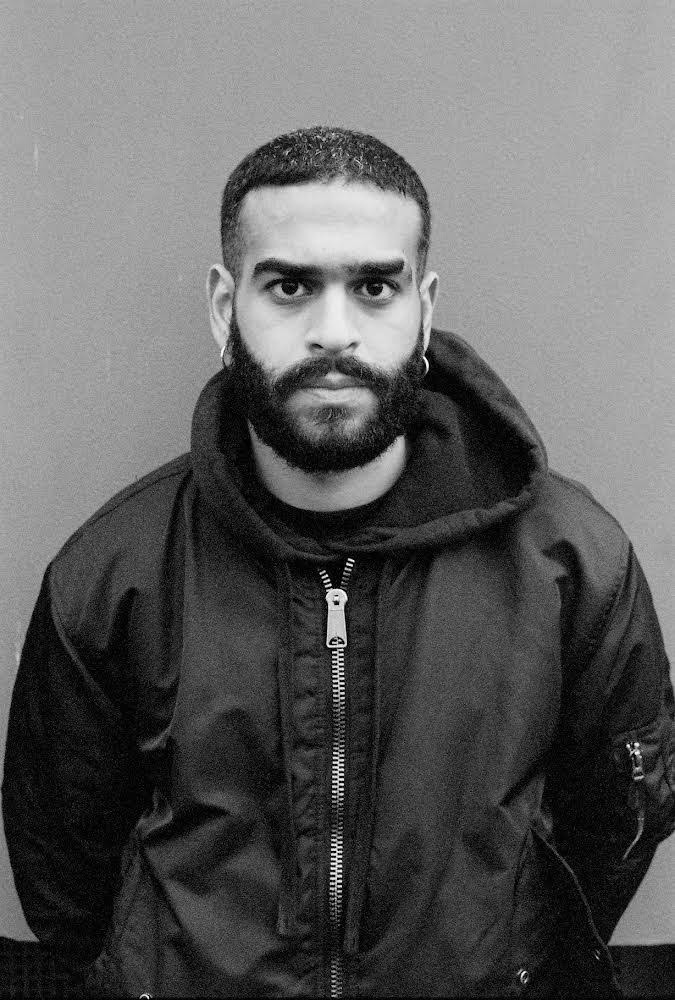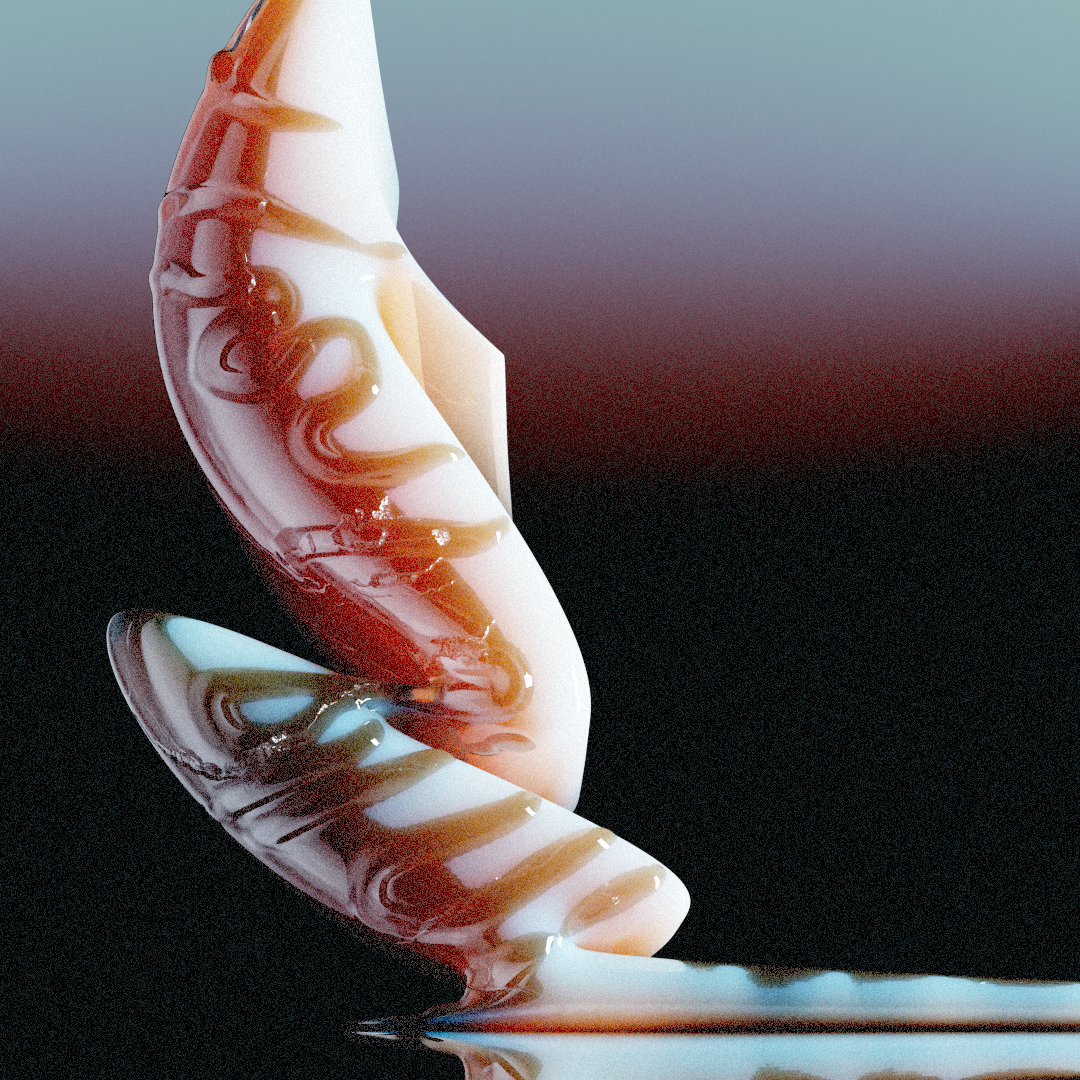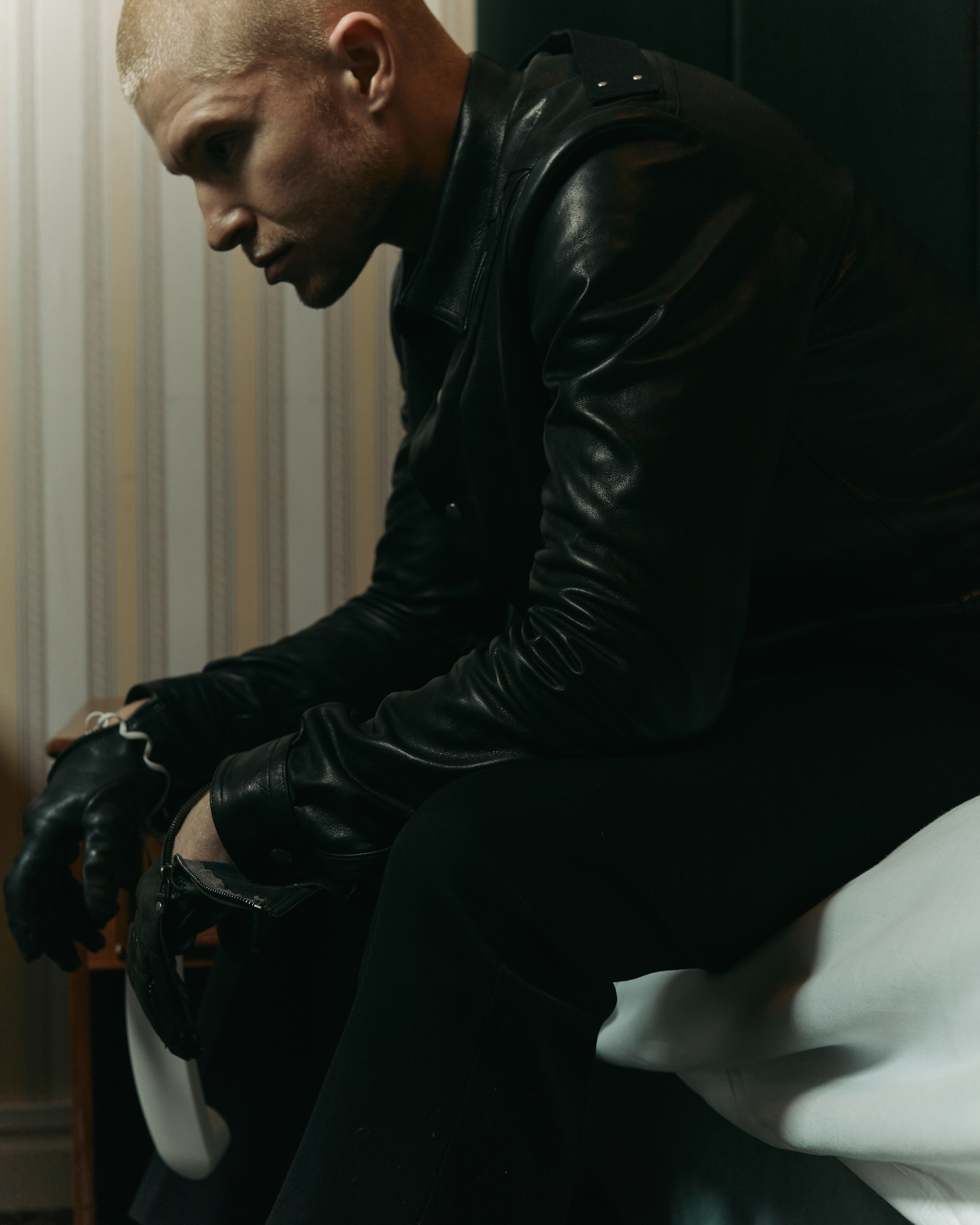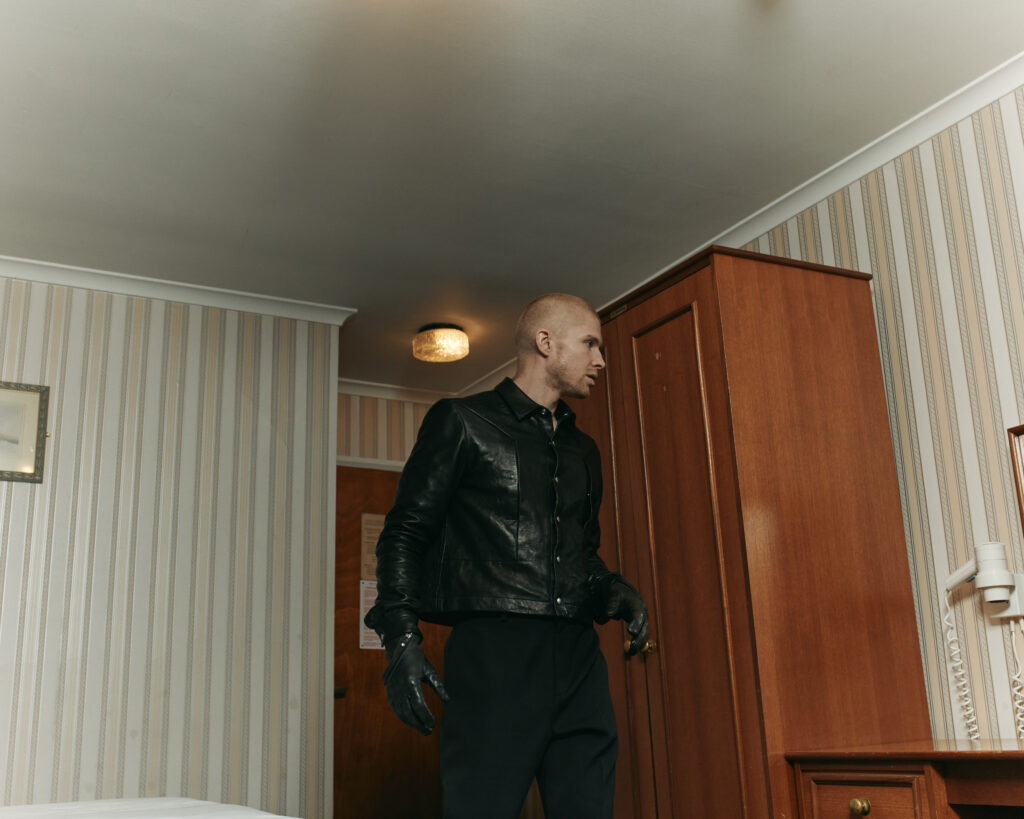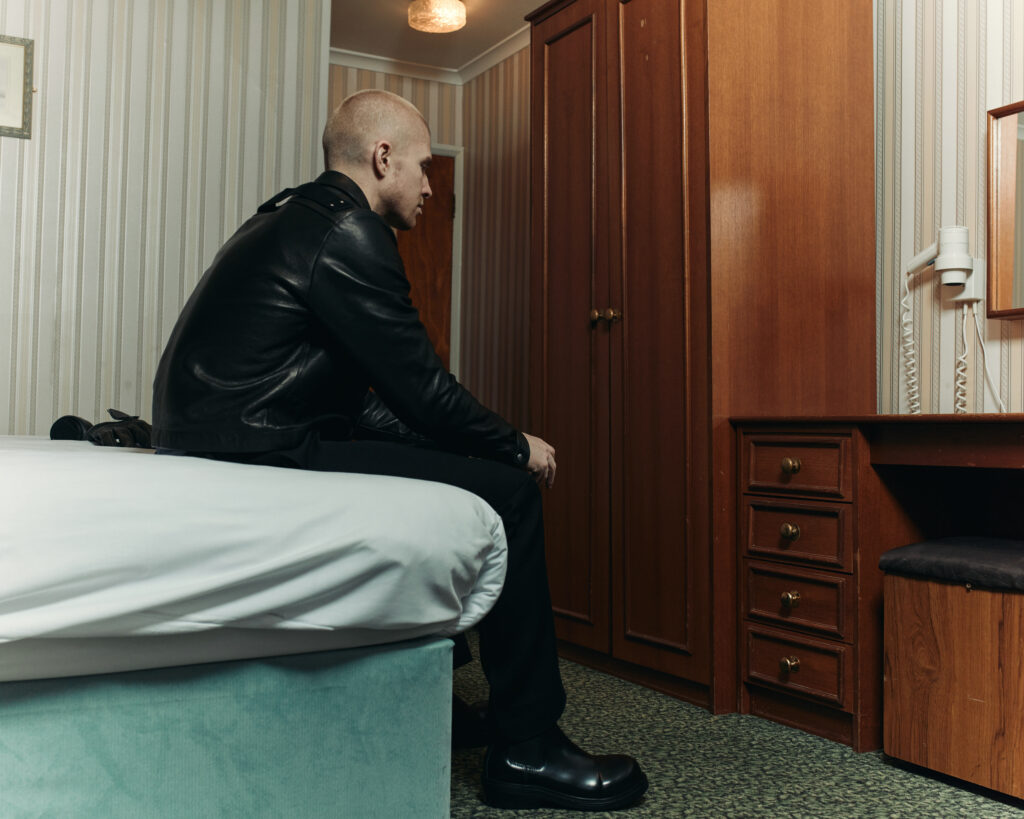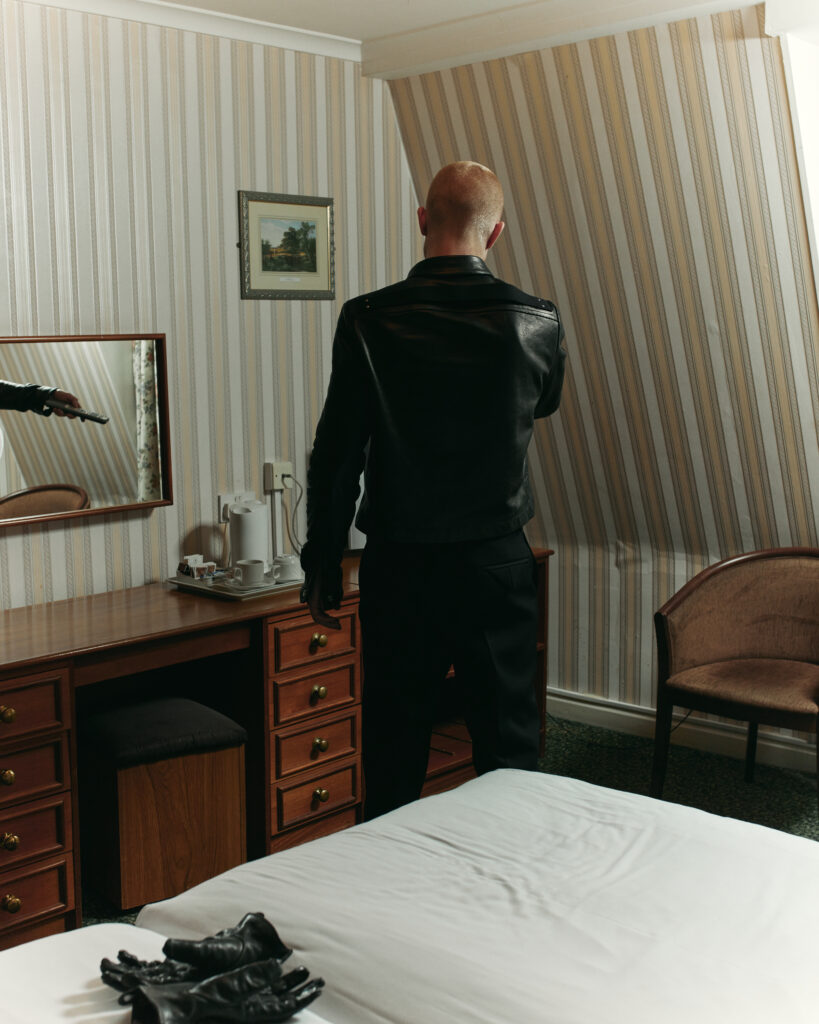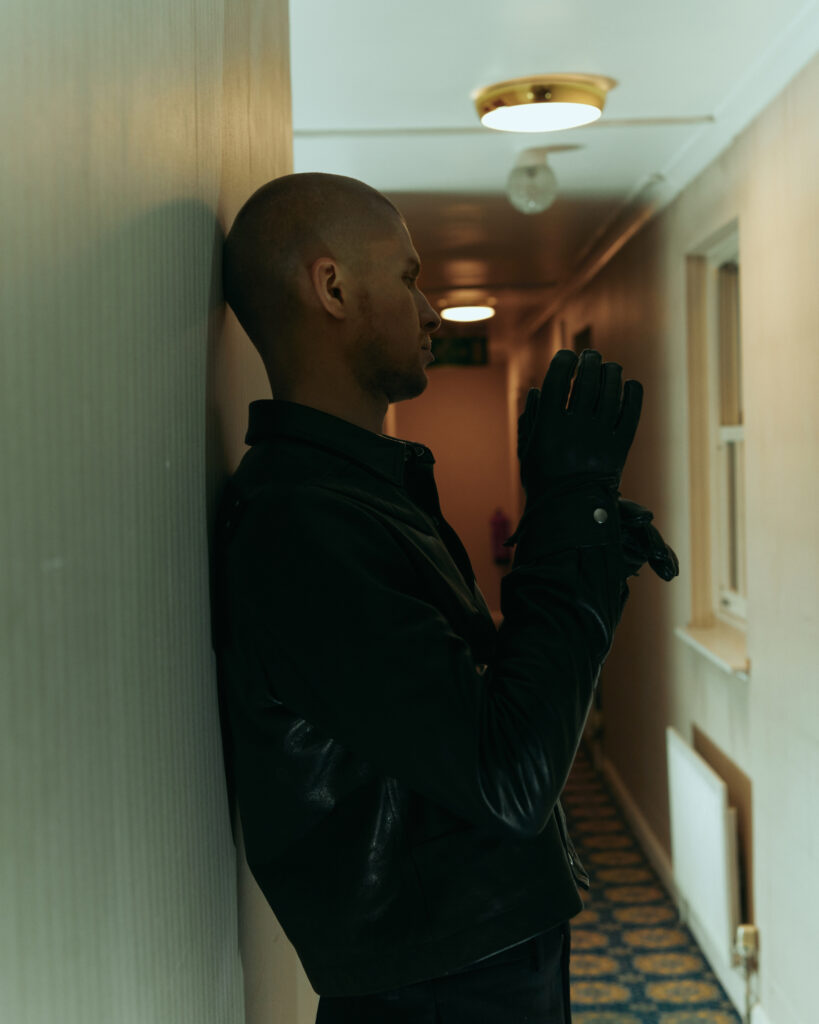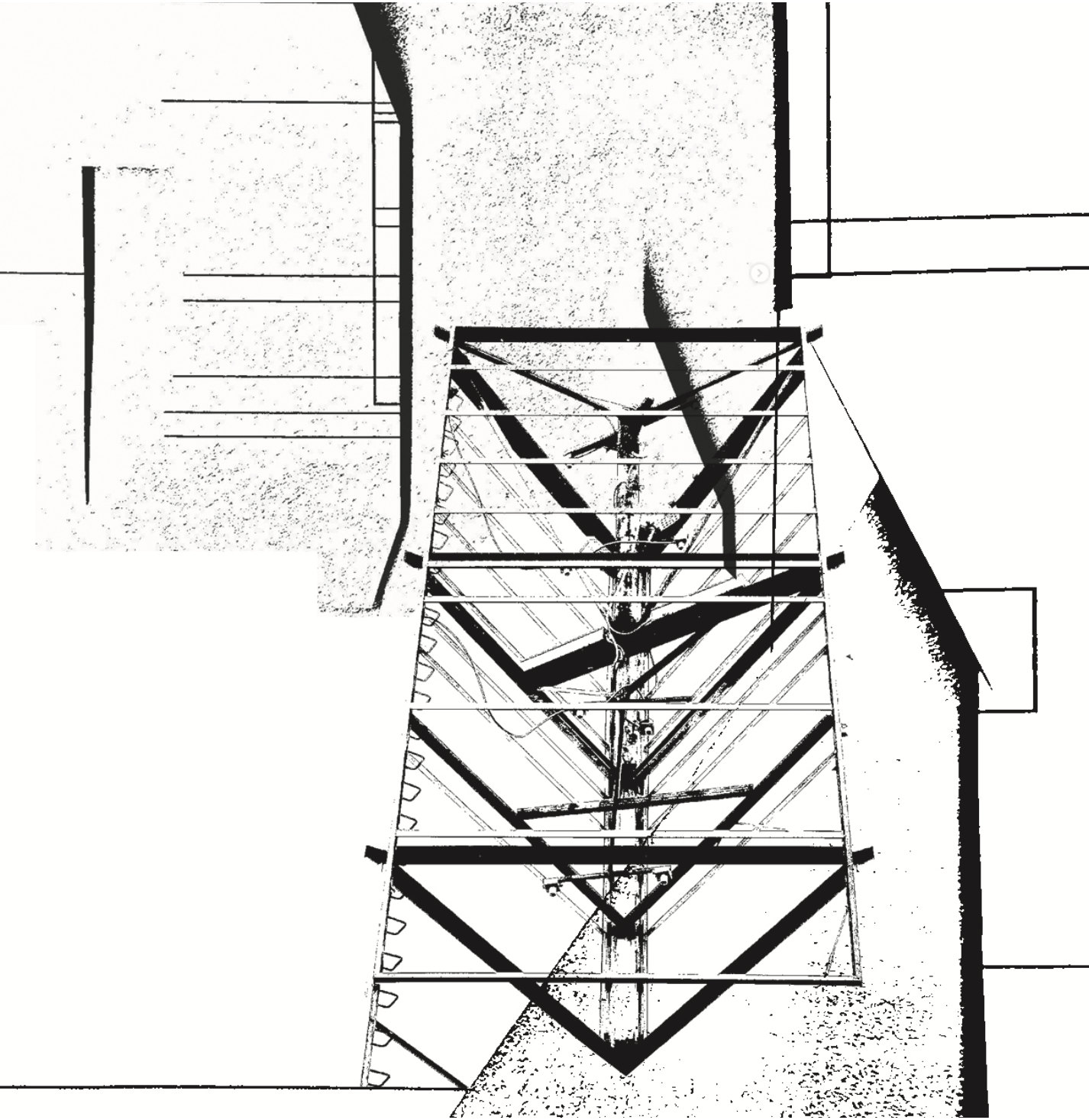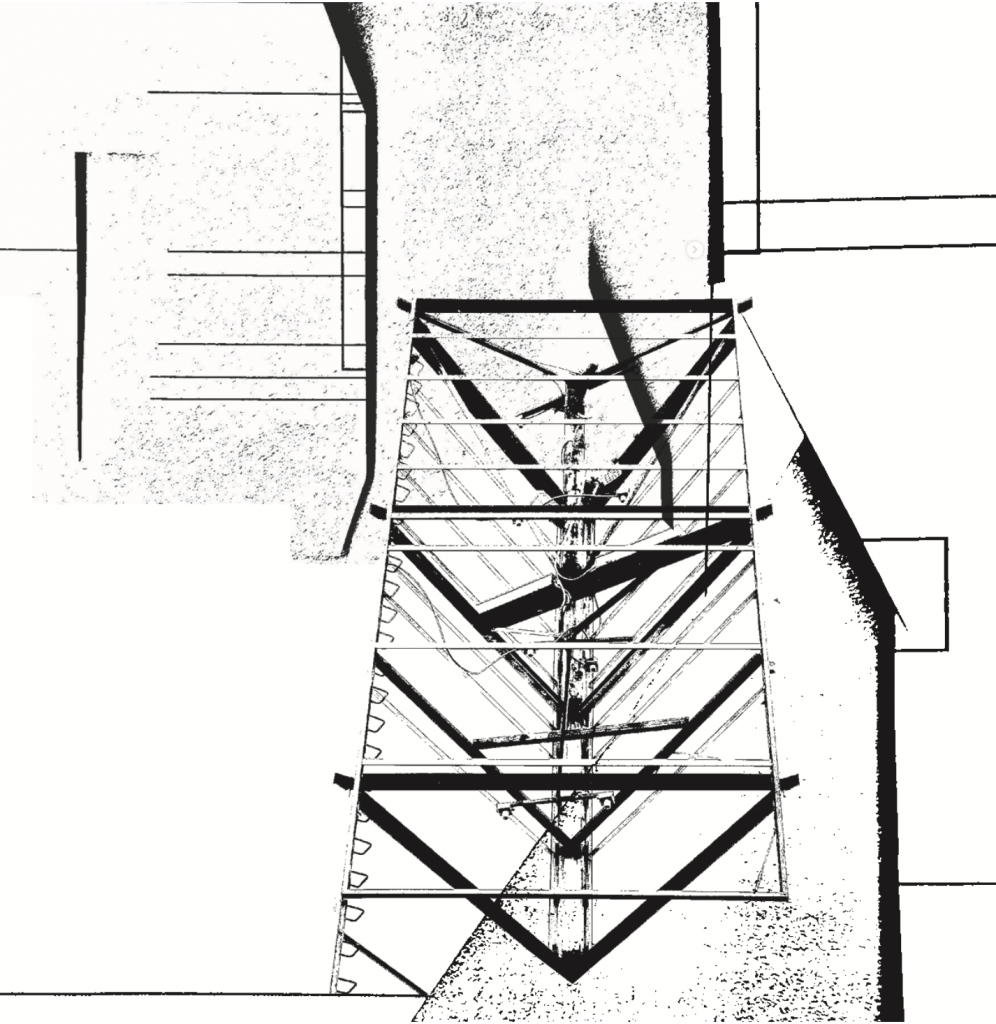
Strike
NR presents Track Etymology, the textual corollary to nr.world’s exploration of contemporary soundscapes: A series of short interviews delving in the processes and backstories behind the releases premiered on nr.world’s dedicated platform.
I did some digging on your previous releases while preparing for this interview. One aspect that I was immediately drawn to was connecting the threads between Strike and your earlier productions. Should we go over shared specifics and differences between this new EP and your previous works? I think it would make a great starting point for us to introduce and contextualize M.A036.
I’ve been DJing for many more years than I’ve been producing, so my inclination towards creating a track comes largely from the desire to play and mix it. Like many DJs, I am always looking for new interesting sounds that I think will fit with my ever-growing collection, and to discover tracks (and producers) that impress and inspire me. Learning to produce using software was equally an individual learning experience for me (initially instigated by the pandemic when I was still living in UAE), as it was an experience I shared with friends. Across the Middle East, there’s not as many people pursuing this sort of music production – for various reasons – and those that are, I probably know them. It’s a very small scene that extends across the whole region, and there’s a lot of collaboration by necessity as a result. My previous efforts, for example, with my close friend and producer Van Boom, channels much of our shared interests in experimental noise and power electronics, but shaved down into tracks we both enjoy playing during our DJ sets. My earlier solo productions are a good example of many hours of imposed isolation and experimentation – it takes time to learn how to produce a signature sound and really bring the final product to a point where you’re happy with it. In the most recent EP I’ve done with estoc, there’s a few factors at play and what made it what it is…firstly, she’s a friend, and we’ve spent many hours just chatting and getting to know about each other’s lives…this year has been very pivotal for both of us, and I think it has reaffirmed certain relationships with other artists. Like my previous collaborations, there was a lot of back and forth, but also a lot of trust and compromise. B2B DJ sets are pretty common these days, but working on tracks together and releasing them as well is much more challenging – it requires you to trust someone else with your sound, it’s very intimate, but the results speak for themselves. I think this EP with estoc is different than my previous releases as we took our time and it was less impulsive.
Since we are already speaking of connecting threads, your bio states that ‘your identity is layered through both productions and performances, navigating away from a Eurocentric focus, mixing a 90’s era rave musical lexicon and a wide spectrum of music from fellow Middle Eastern producers.’ How do you find balance in an approach that feels both respectful of its influences and liberating from those same traditions and sonic stereotypes?
I think that I play what I like listening to, and therefore my sets are genuine expressions of my tastes, first and foremost. I don’t play music that’s ‘trending’, and I certainly don’t do people favors either. Some DJs opt to play based on the (expected) tastes of audiences, which is fine, but for me that leaves little room for surprise. Not that my sets are totally unpredictable, but I like to throw in unfamiliar tracks, edits, unreleased stuff from people that otherwise would never be played in European clubs.
“For me, getting away from the Eurocentric focus isn’t only about the sounds or tracks themselves, or where the producers are from, but actually avoiding the pressure to perform and operate as a DJ with these aforementioned ‘European’ standards.”
There’s quite a bit of pressure to conform and play what people might expect, and I don’t want to do this, because I am not European, I just live here.
Is it a mindful process, a specific sound design choice, or more of something almost unconsciously ingrained in your process, a natural approach you have towards mixing sounds, pun intended, and expressing yourself through them?
I think DJing, and really delivering a fun, energetic performance to your audience is experiences on and off the dancefloor. Some people have very acute skills, such as a very good ear for beatmatching and blends, where some people have simply spent so much time organizing events, listening to longer sets from start to finish, and dancing themselves that they just know what works for the crowd. It’s so important that people who are DJing can relate to the audience on a very intimate level, otherwise you’re left with this very obvious disconnect. I feel my audience is usually varied, and so are there tastes, as is mine. It’s really about making everything work together, and skillfully matching things up in unexpected ways. I’m mindful about it, but most of my decisions are made ‘in the moment’, so a lot of it stems from risk-taking and experimenting, largely tied to intuition, and that’s something which becomes sharper through your own.
The sense of self-exploration and experimentation behind your music reminded me of Underground Resistance and their ethos: relating early Detroit Techno aesthetics to the social, political, and economic circumstances they were facing.
Music and its dissemination is situated. It resonates differently depending on who’s playing it, to whom and where, and when played in club settings, that extends to what it’s mixed with and why. Most people don’t pay attention to these questions when they are going out, and I don’t blame them…it’s not always a consideration that everyone has when they want to just go out and have a good time. Although, I think audiences these days are much more conscious and inquisitive, especially given the current climate…I think this sense of affiliation to common goals and social objectives is becoming more present, especially in regards to breaking down categories.
Do you think that nowadays, as electronic music culture has become a global mass movement and club music has generally shifted from the underground’s hazy light into the media spotlight, such stances are still possible? Do you believe that creating sonic communities on the periphery of mainstream culture is still a viable form of sonic resistance?
Is it really a movement? I’m not sure that’s the best word to use, as when I think of movements, I think of selflessness and fading individualism for the greater good…with club culture today, I still see a lot of self-centering, egoism, choices and strategies based around economic growth at all costs. As its popularity increases, so do its misinterpretations and its easy to lose sight of the bigger picture.
“Club culture, to a large degree, feels quite co-opted at the moment, so supporting smaller, independent spaces and promoters is more vital than ever.”
I touched on the concept of resistance because I feel that it is a central theme of our contemporary world, and I imagine it being especially, and painfully, close to you as a Palestinian.
Many, if not all, Palestinian people both in Palestine and around the world would say that resistance is a tenet of our existence, if not a vital theme of how we get through each day.
“In the same way that all marginalized people suffer under oppression, Palestinians are resisting more than just occupation and violence – we are resisting our miscategorization, as individuals, as a population and as a culture, and of our being viewed as less-deserving of our humanity.”
Club music has always positioned itself on the thin line between pure hedonism and almost political defiance. How do you feel about this dichotomy during such complicated times?
This is a very poignant question, and one which I’ve thought about a lot these days as someone living in Berlin. On one hand, this is both my passion and my preferred source of income – neither of which I want to give up, and this is requiring me to actively pursue and accept gigs. There’s been many occasions since relocating to Germany where I wanted to give up on DJing, simply because the hostile climate towards Palestinians (or Arabs, or POC, for that matter) was so present in the scene.
“It’s not like we are never booked, but it feels we are almost always optioned last, or doubted, or tokenized.”
With this in mind, my choice to continue playing and my presence is in itself political, even if it’s sometimes just a random booking. There are events which still cater to the hedonistic crowd (evidently in Berlin), but I wouldn’t say that it’s the only kind of events I like playing for. I’ve been lucky to play a handful of gigs in the last while which center around solidarity, community and togetherness – pretty much the opposite of hedonism, or at least these events offered various / multiple reasons for people to show up. I think at the moment, balance is key. Audiences, and people in general, are just becoming more aware and conscious of the world around them, more informed, and I think club spaces should also be operating in a more informed manner, and engage with their audiences who are ultimately the ones keeping their businesses running.
Do you think this contradiction is something that needs to be resolved, or perhaps it is something we need now more than ever to internalize as both consumers and creators, to help us better navigate the contradictory landscapes we are facing today in music, culture, and social life?
We all still must operate within capitalism and consumer habits have infiltrated everything. Consumption is engrained now to such a degree that value is attached to everything. I hate to say it, but I don’t really know if all of this will last very long if things keep going this way.
“I think we need to have a reassessment of ‘real’ values, and create more events, spaces and projects which operate away from economic motives.”
This is something that needs to be said, at this time especially, because it is really leading to a very watered down culture overall. Social media, I feel, has greatly harmed dance music and clubbing as an experience. Connection and responsibility feels short lived. Of course, it goes without saying, it has helped to platform, amplify and support many artists and their careers, but there’s a downside as well. Attention spans are so short and people can easily take an apathetic stance while making it seem like they truly have a position.
“I think at present, DJs should use their platforms to speak for those who can’t, and use their influence positively.”
One last question to complete this release backstory’s picture: what were some of the influences behind it? Musical and not.
I really wanted to approach this in a totally freeform way and just have fun. Working on this with estoc let me take my mind off a lot of things… estoc is such a multifaceted artist and producer; she does tons of remixes and collaborations, and I felt inspired to be pairing up with her, and especially being able to get this EP out just before she will have her FFS*. It took a while going back and forth, as she was already back in the US when we really started to hammer things out. It was really a pleasure to get the remixes back as well from 3Phaz and Brodinski, and we’re really pleased with what they came up with. Both her and I have an obsession with punk and noise, and I think together this came through in the end. We like that it’s merging so many things all at once, and also fits to the label as well, which we’ve both been huge fans of since its inception. Myself and DJ LOSER really wanted to invite her out to Berlin to play at the showcase we’re doing at Ohm next week, but unfortunately the timing wasn’t right, so I am really looking forward to meeting up with her when she’s recovered and touring again in a few months.
Order the digital album here from 01.02.24
Interview · Andrea Bratta
Photography · Mike D’Hondt
Follow Oldyungmayn on Instagram and Soundcloud
Follow Estoc on Instagram and Soundcloud
*You can contribute to Estoc’s fundraiser here
Follow DJ LOSER on Instagram and Soudcloud
Follow Magdalena’s Apathy on Soundcloud
Follow NR on Instagram and Soundcloud
